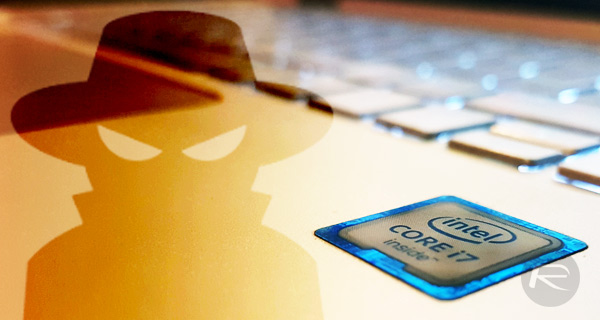A critical security flaw in all Intel processors manufactured within the last decade has the potential to significantly affect performance when patched.
The vulnerability, which has the potential to make major operating systems vulnerable to malicious hackers, can expose information which is supposed to be stored and protected in kernel memory.

As initially reported by The Register, the worrying design flaw in Intel’s chips is so serious that it has actually forced maintainers of popular operating systems to have to redesign the kernel within that OS in order to patch the problem and ensure the safety of user’s data which is supposed to be stored in protected kernel memory. Microsoft, creator, and maintainer of the Windows platform has already issued patches to testers who receive Insider Builds back in November and December of 2017. The company is expected to publicly roll out those changes sooner-rather-than-later with a Patch Tuesday release.
Linux, which is an open-source operating system maintained by the community, is a different kettle of fish altogether. Those global programmers who are passionate and enthusiastic about the open-source Linux OS are already going through the process of trying to redesign the Linux kernel in order to mitigate the risk posed by the chip-level vulnerability. However, given the more fluid nature of Linux, and the fact that it isn’t backed by a giant corporation like Microsoft, there is currently no estimated time of release for when this will be patched and released.

Apple will also need to counteract the problem with an update to its own macOS software, which is the only way this can be solved without forcing users to replace the processor with a non-affected chip.
Perhaps more infuriating for users, the updates to the kernel are expected to come with a fairly significant performance hit. Where Linux and Windows are concerned, detriments are still being benchmarked, but it’s predicted that hardware performance could decline by anywhere between 5 and 30-percent once the kernel updates are pushed out to the respective platforms.
These numbers and statistics will vary depending on the hardware and machine in question, as well as the task that’s actually being performed by the machine, but it’s likely that users will be able to instantly notice a performance hit.
You may also like to check out:
- iOS 11 / 11.1.2 Jailbreak Now Allows Some Cydia Tweaks To Be Installed Thanks To New To.Panga Update
- Houdini Beta 2 IPA iOS 11 / 11.1.2 Semi-Jailbreak Released [Download]
- Jailbreak iOS 11 / 11.1.2 Using LiberiOS, Here’s How [Tutorial]
- Jailbreak iOS 11.2.1 / 11.2 / 11.2.5 On iPhone And iPad [Status Update]
- Jailbreak tvOS 11 / 11.1 On Apple TV 4 / 4K Using LiberTV 1.1
- Downgrade iOS 11 / 11.2.1 To 11.1.2 On iPhone Or iPad [How-To Guide]
- Jailbreak iOS 11 / 11.1.2 On iPhone X, 8, 7, iPad Using LiberiOS [Updated]
You can follow us on Twitter, add us to your circle on Google+ or like our Facebook page to keep yourself updated on all the latest from Microsoft, Google, Apple and the Web.

